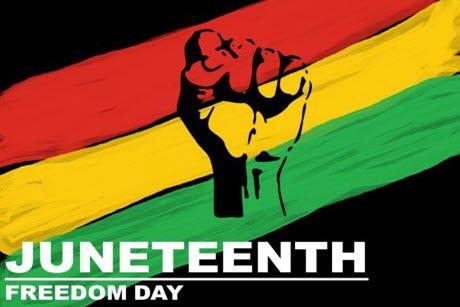Celebrating and Reflecting Upon Juneteenth

According to the New York Times, “On June 19, 1865, about two months after the Confederate general Robert E. Lee surrendered at Appomattox, Va., Gordon Granger, a Union general, arrived in Galveston, Texas, to inform enslaved African-Americans of their freedom and that the Civil War had ended. General Granger’s announcement put into effect the Emancipation Proclamation, which had been issued more than two and a half years earlier on Jan. 1, 1863, by President Abraham Lincoln.” This day, a mix of celebration and tragic delay, is now a holiday which memorializes the anniversary of the delayed announcement.
Vox further explains, “As much as Juneteenth represents freedom, it also represents how emancipation was tragically delayed for enslaved people in the deepest reaches of the Confederacy.” This day is now celebrated annually as a federal holiday.
The holiday received its name by combining June and 19 which became the portmanteau Juneteenth. Juneteenth has been celebrated by African-Americans since the late 1800s and “is the oldest nationally celebrated commemoration of the ending of slavery in the United States.”
According to the Smithsonian’s National Museum of African American History and Culture website, “Juneteenth marks our country’s second independence day.” This year there will be the 4th Annual Rhode Island Juneteenth celebration.
To commemorate Juneteenth 2021, officials in Bristol, RWU researchers, and students, “were placing the first of two planned slavery markers in town at the Linden Place Museum, a mansion built in the 1800s by General George DeWolf, a prominent merchant and slave trader.” Another medallion was placed at DeWolf Tavern. More information about these markers can be found at the website for the Rhode Island Slave History Medallions and in this news story about the medallion installation.
Library Blog

